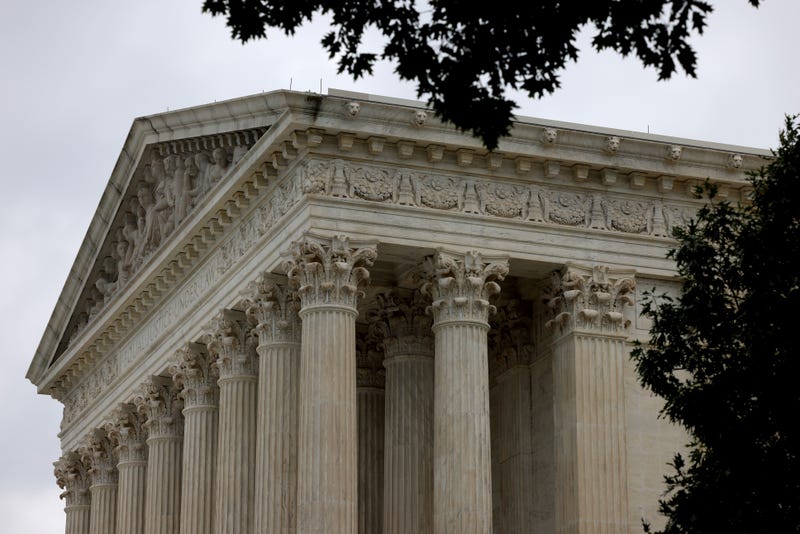
The Supreme Court ruled 8-1 Wednesday that a school violated a student's First Amendment rights when it suspended her for a profanity-laced, off-campus rant posted to social media.
The cheerleader, Brandy Levy, had posted a photo to Snapchat in 2017 after not making the varsity team, showing her middle finger along with a caption that read, “F— the school. F— cheer. F— everything.”
The school suspended her because of the posts, and the girl’s family fought back in court, arguing the school could not punish her for behavior off school grounds.
On appeal, a federal court agreed with her family. Wednesday, the Supreme Court affirmed that ruling, but specified the First Amendment did not provide blanket protection for speech.
"While public schools may have a special interest in regulating some off-campus student speech,” wrote Justice Stephen Breyer for the majority, “the special interests offered by the school are not sufficient to overcome [the student’s] interest in free expression in this case.”
"The court left open the door for schools to punish students for off-campus speech in more serious cases,” said Dr. Jason M. Shepard, a media law professor at California State University, Fullerton. “That might include targeted bullying or threats against students or teachers that have serious, negative effects on the school environment, for example.”
The court’s majority opinion pointed to a 1969 decision in Tinker v. Des Moines Independent Community School District where the court ruled school leadership could not suspend students for wearing armbands to protest the Vietnam War because it was not disruptive. The justices said the same applied here to the cheerleader’s off-campus expression.
“Protecting young people’s free speech rights when they are outside of school is vital,” said ACLU legal director David Cole in a statement. “This is a huge victory for the free speech rights of millions of students who attend our nation’s public schools.”
The ACLU posted a profanity-filled tweet similar to Levy's on Wednesday advertising T-shirts with a similar message in support of the high court's ruling.
In his dissenting opinion, Justice Clarence Thomas questioned whether schools will have more or less authority to discipline students for social media postings off-campus.
“The school itself has an interest in protecting a student’s unpopular expression,” Breyer wrote for the majority, “because America’s public schools are the nurseries of democracy.”

